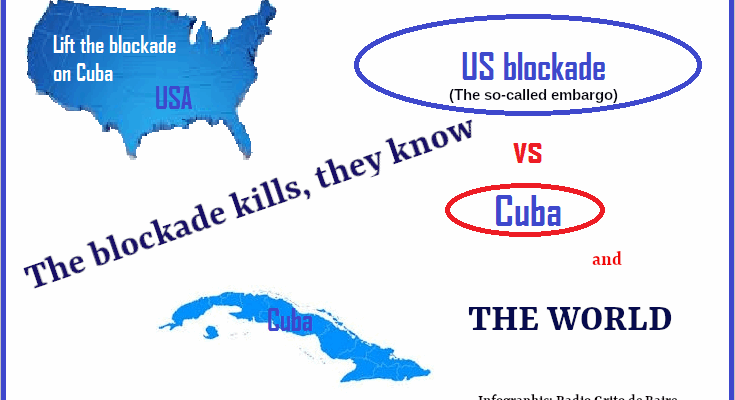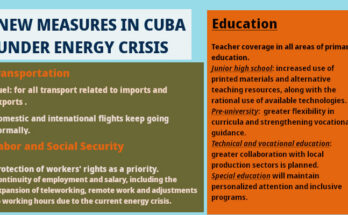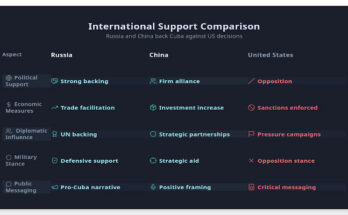The moral deterioration that has characterized the policy in Washington in recent years offers two narratives to justify six decades of US blockade against Cuba, a undeserved punishment.
On the one hand, the most retrograde sectors justify the sanctions, claiming alleged historical offenses of Cuba. They cling to the network of restrictions, clinging to the last screw that the bilateral dialogue manages to disassemble.
On the other hand, the progressives defend the change of policy by calling the blockade “failed”, which, in its literal meaning, recognizes the inability to bend the will of the Cuban people and government.
But the blockade is neither a failure nor a punishment deserved for the challenges imposed on the construction of our sovereignty.
After decades of study, Cuba knows precisely the human cost of these sanctions: millions lost that would have relieved our economy, lacking almost anything.
Recently, international experts have quantified the previously invisible: the concrete death of human beings – brothers, uncles, nephews – in blocked nations.
The Washington D.C. It presents us with “effects of international sanctions on mortality according to age groups: comparative panel analysis” (Rodríguez, Rendón, Weisbrot, 2023), devastating findings, based on data from 170 countries studied between 1965 and 2019.
Although the study in total provides a lot of relevant information, it is worth highlighting five essential results:
- The blockade produces a significant increase in general mortality: rates grow in all age groups, denying the myth of “directed” sanctions without humanitarian damage.
- The blockade is more lethal against infants: mortality in children under 1 year increases 21% due to collapses in health, nutrition, and access to medicines.
- The blockade has a profoundly negative cumulative effect: a longer duration of the blockade is associated with greater mortality. Postulate that refutes the fallacy of “temporary shock”.
- Selective Gender Impact: Women die more easily than men in those adverse scenarios generated by blockade, due to their specific vulnerabilities (maternal health, care load).
- No other blockade is more lethal than the American: the unilateral sanctions applied by the United States are more deadly than the multilateral ones imposed by the United Nations Security Council or those generated by other blocs or countries.
Why are US sanctions so destructive?
- Extraterritoriality: they penalize transactions outside their jurisdiction. They have proven to be able to sanction entities, governments, and individuals specifically, regardless of borders.
- Over-compliance (from the English term “Overcompliance”): banks and companies avoid allegedly allowed food and medicine, for fear of fines.
- Sector sanctions: suffocate income by blocking oil, finance or transport, which then ends up affecting essential services such as access to health, food and medicines.
Example: Venezuelan crude sanctions (2019) reduced exports of the Bolivarian government by 90% and increased infant mortality by 40%.
The blockade against Cuba, in force for more than 60 years, is not a “failed” policy, nor a fair punishment. It is a deliberate economic war act designed to starve a town and destabilize the country, while frequent international convictions are ignored.
This study confirms what Cuba maintains: “The block kills, and its architects know it”: a crime against humanity documented in pain figures.
(Taken from PL)




